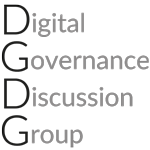By Tobias B. Bacherle.
Studying the Convention on Cybercrime I realise that all my worries have been confirmed. During one of the most effective attacks by digital authoritarianism, internet freedom, and human rights in the digital space did not win anything in the negotiations.
The reactions to the adoption of the convention were even more puzzling, where unconcealed joy accompanied the first reports of a deal, followed by happy tweets from diplomats. After three years, the ad hoc working group has agreed on a Cybercrime Convention. Hooray!? Unfortunately not.
The convention seems to be about creating an international set of rules, which at first glance appear to complement the fight against crime, in the digital space and translate it into international law. However, the content of the agreed document has very little to do with the decent goals one might associate with its title.
Continue reading “The UN Cybercrime convention is a victory for digital authoritarianism”